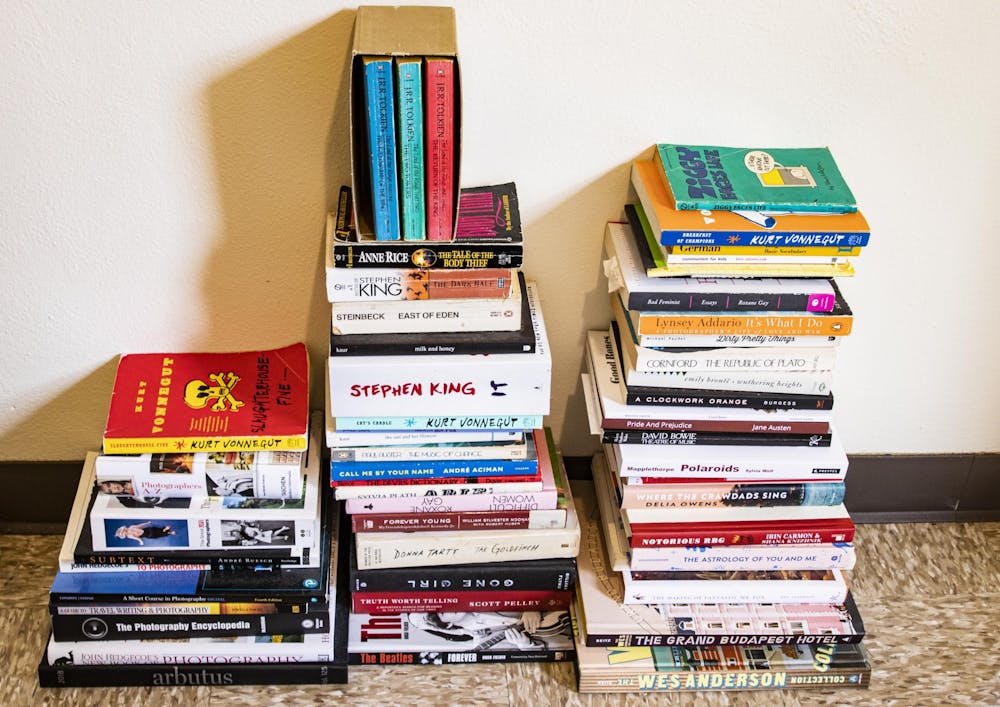The recent nationwide reckoning with racism has expanded to discussing inequality within the workplace, including the world of publishing. Last week, the hashtag #PublishingPaidMe began trending for writers to discuss the pay disparity that occurs in the industry.
There was a particular focus on Black authors due to many book publishing companies’ statements of support for Black Lives Matter, such as the powerful company HarperCollins, who tweeted its support June 1.
People were interested in seeing if the companies’ claims of promoting diversity in the publishing industry were based in reality by using the metric of compensation. The trend and subsequent online conversation were kickstarted by author LL McKinney, who clarified that the trend would be specifically focused on discrimination against Black authors.
The numbers that authors came forward with, as well as my subsequent research on the issue, affirmed the sad truth of the industry’s discrimination against Black authors. Book publishing companies must do more than tweet out empty platitudes. They must properly compensate Black authors for their books, as well as market these books with just as much passion as they market books by white authors.
While browsing this hashtag, I saw that there were almost completely unknown white authors getting paid double the amount that well-known Black authors, such as feminist Roxane Gay, were paid. I was particularly shocked to learn that N.K. Jemisin, author of the Hugo Award winning science fiction series “Broken Earth,” received only $25,000 in advancements for each book in the series, while white author Laura Sebastian received $185,000 per book for the “Ash Princess” series, a fantasy trilogy that did not receive near the same level of universal acclaim.
Discrimination against Black authors isn’t just limited to pay, either. An NPR article, “Diversity in Book Publishing Isn't Just About Writers — Marketing Matters, Too,” highlights the issue of lack of diversity in staff positions within publishing companies.
The article cites the Lee & Low survey, which found that in marketing and publicity departments in publishing companies, about 77% of employees are white. This is important because individuals who work in these departments have a massive influence on how a book is marketed to consumers, as well as how the book is presented to the press.
Medium writer John the Correlator also chimed in on the discussion by compiling statistics about the famous New York Times Bestseller List. He focused specifically on the Young Adult category and compiled data stretching from the end of 2017 to June 8. What he found out about the list in terms of diversity was quite troubling.
According to the article, over an almost three year period, 22 debut books have hit the NYT Bestseller List, but only one of these books was written by a Black author.
He also found that of all the books on the list that were published by the company HarperCollins, the aforementioned powerful publishing imprint with a love for platitudes, only 15% were written by Black authors.
Although these figures may seem depressing, we have the power to help change the book publishing industry. The most important thing that we can do to support Black authors is buy their books. Purchase them, review them on blogs and book review sites and recommend them to your fellow bookworms.
Roseanne A. Brown is a Black author who recently released her debut, a young adult fantasy titled “A Song of Wraiths and Ruin.” Then there’s “You Should See Me in a Crown” by Leah Johnson, a contemporary LGBTQ romance, just released June 2. And the publishing industry isn’t limited to fiction. I highly recommend the poetry book “The Tradition” by Jericho Brown, which recently won the Pulitzer Prize for poetry.
But this is just the tip of the iceberg when it comes to books by Black authors. There are so many wonderful books out there for readers to enjoy, and by purchasing these novels and reading them, we can help in the quest to create a more diverse book publishing industry.
Molly Hayes (she/her) is a rising junior studying English. She plans to earn a Master of Library Science.






